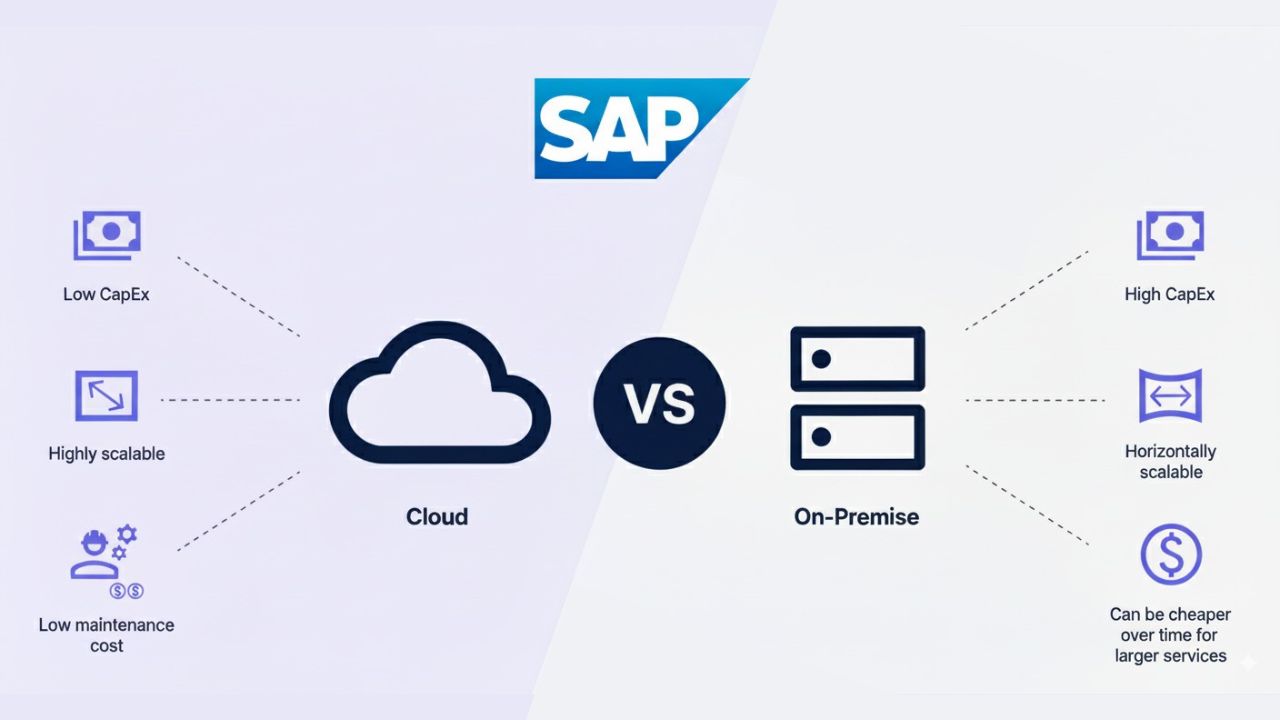
I came across this insightful LinkedIn post and wanted to share my thoughts, but quickly realized my response would far exceed the comment character limit. So instead of cramming my perspective into multiple fragmented comments, I decided to give this important topic the space it deserves.
Below you'll find the original post that sparked this discussion, followed by my detailed response. This is exactly the kind of nuanced conversation our industry needs when it comes to S/4HANA transformation decisions.
Here's the original post:
Slavisa Lečić: Over the past months, many customers have asked me the same question: "We understand the move to SAP S/4HANA is inevitable, but why should we consider the cloud instead of staying on-premise?"
This is an important decision point. Both SAP S/4HANA On-Premise and SAP S/4HANA Cloud Private Edition share the same digital core. However, the way they are delivered, consumed, and innovated makes a real difference for your transformation journey.
The cloud path offers compelling advantages: embedded AI and agents with Joule infused across processes, making operations smarter and more predictive. You get unique functionality like Central Procurement, Central Finance, and Sustainability Control Tower that are cloud-only. There's integrated data and insights with direct connection to SAP Business Data Cloud, plus excellence in cloud operations managed by SAP with 99.99% SLA and security-by-design.
The value proposition is clear: faster time-to-value by activating capabilities instead of building them, lower TCO through reduced infrastructure effort, and staying future-proof with continuous innovations in AI and sustainability. You gain business agility to scale globally with standardized, clean core ERP.
And here's my response:
Dejan Majkic: Slavisa, to make this post really valuable, we need to tackle the other option too. Because this way it looks like a sales pitch.
Let's be completely transparent here. On-premise SAP S/4HANA isn't some outdated choice that companies should abandon. There are solid, strategic reasons why many organizations still choose this path, and pretending otherwise would be doing you a disservice.
If you are working with heavily regulated industries where data sovereignty isn't just a preference, it's a legal requirement. When you're a bank dealing with financial regulations, government services, a healthcare provider managing patient data, and so on... sometimes you simply cannot have your core business data residing in someone else's infrastructure, no matter how secure they promise it is. The compliance frameworks in these sectors often demand that level of control.
Then there's the customization reality. Some businesses have legitimate, complex requirements that need deep modifications. If you're in manufacturing with highly specialized processes, or you've built competitive advantages through unique SAP configurations over the years, on-premise gives you that flexibility to modify the system in ways cloud simply won't allow.
From a financial perspective, many people prefer the predictability of on-premise costs. Yes, there's a higher upfront investment, but once it's deployed, you're not looking at those monthly subscription fees that can add up significantly over time. If you've already invested heavily in data center infrastructure and have a strong internal IT team, the economics might actually favor keeping things in-house.
And here's something we don't talk about enough, some organizations genuinely have exceptional internal SAP expertise. They've built teams that know the system inside and out, they enjoy having full control over upgrades and maintenance schedules, and they've optimized their operations around managing their own infrastructure. For them, handing over that control to a cloud provider might actually feel like a step backward.
So, how to decide then?
Here's how I approach this: Choose SAP cloud if you want to focus your energy on business innovation rather than infrastructure management, if you need rapid access to emerging capabilities like AI, or if you're looking to standardize operations across multiple locations quickly.
Choose SAP on-premise if you have strict regulatory requirements that demand local control, if you've built competitive advantages through system customizations, or if you have strong internal capabilities and prefer the predictability of owned infrastructure.
But...
Here's what's often overlooked, before making any decision, you need to step back and perform an independent, comprehensive analysis of your current installation and business environment. This analysis shouldn't just compare cloud versus on-premise SAP options. It should evaluate all possible paths that could deliver a beneficial and sustainable system for the next 5-10 years.
That might indeed be SAP Cloud. It could be staying on-premise with S/4HANA. But it might also mean considering other ERP platforms entirely, hybrid approaches, or even questioning whether your current SAP investment still aligns with your business strategy.
The truth is, there's no universal right answer here. It's about understanding your specific context, constraints, and strategic priorities. What matters most is making an informed decision based on thorough analysis of all options, not just the ones being marketed to you or following the latest industry trend.
What's your perspective on my thoughts? Are there any other specific factors in your industry or organization that make one path more compelling than the other?






